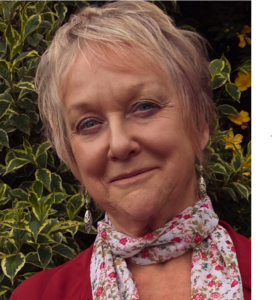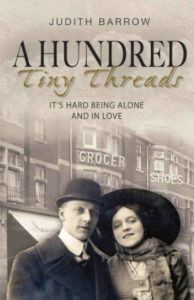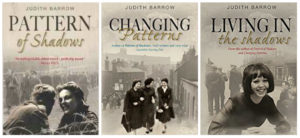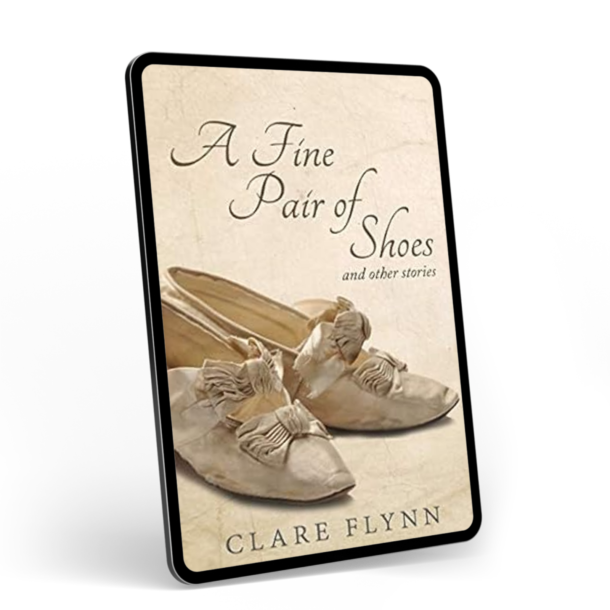 Today I am talking to Judith Barrow about her new novel, A Hundred Tiny Threads. Judith has lived in Pembrokeshire, Wales, for almost forty years. She has impressive academic credentials – an MA in Creative Writing with the University of Wales Trinity St David’s College, Carmarthen, a BA (Hons) in Literature with the Open University and a Diploma in Drama from Swansea University. She has had short stories, plays, reviews and articles, published throughout the British Isles and has won several poetry competitions. She is also a Creative Writing tutor.
Today I am talking to Judith Barrow about her new novel, A Hundred Tiny Threads. Judith has lived in Pembrokeshire, Wales, for almost forty years. She has impressive academic credentials – an MA in Creative Writing with the University of Wales Trinity St David’s College, Carmarthen, a BA (Hons) in Literature with the Open University and a Diploma in Drama from Swansea University. She has had short stories, plays, reviews and articles, published throughout the British Isles and has won several poetry competitions. She is also a Creative Writing tutor.
Tell me about A Hundred Tiny Threads – how did you come to write it and where and when is it set?
A Hundred Tiny Threads is the story of the parents of the protagonist in my trilogy, Mary Howarth. I thought I’d finished with the characters when the last book ended. But something niggled away at me until I realised that until their story was told; their lives explained, the narration was incomplete.
 A Hundred Tiny Threads takes place during a time of social and political upheaval, between the years 1911 and 1922. It’s set in Yorkshire, Lancashire and Ireland at the time of the first World War and the Uprising in Ireland.
A Hundred Tiny Threads takes place during a time of social and political upheaval, between the years 1911 and 1922. It’s set in Yorkshire, Lancashire and Ireland at the time of the first World War and the Uprising in Ireland.
Winifred Duffy rebels against her humdrum life when Honora, an Irish girl with the freedom to do as she pleases, takes Winifred to a suffragette rally. She meets Honora’s handsome and silver-tongued medical student brother, Conal, and Winifred’s heart and life is turned upside down. Bill Howarth’s troubled childhood echoes through his early adult life and the scars linger, affecting his work, his relationships and his health. A chance meeting with Winifred, the girl he would like to marry, could change him but both personal and world events take over. Bill signs on as a soldier in the First World War and afterwards takes part in the Uprising in Ireland as a member of the notorious Black and Tans in Ireland. When he returns he seeks out Winifred, not knowing but fearing she has married Conal.
The book is a prequel to an existing trilogy. What challenges did that represent for you?
I knew the years I wanted to cover in A Hundred Tiny Threads, so one of the obvious difficulties was the timeline. I needed to make sure that those characters already existing in the trilogy fitted correctly into those decades. Other than that it was easier than writing the trilogy. The two main characters, Winifred Duffy and Bill Howarth, are already fully formed, rounded characters then. I wanted to show how the era they had grown up in, the environment, the events, the conditions, had shaped them, moulded them into those characters. I’m hoping that the reader can see that.
Why you didn’t start the trilogy with A Hundred Tiny Threads?
 I actually wasn’t going to write a trilogy. The first of the three books is called Pattern of Shadows. I’ve told the story often about how I discovered that the first German POW camp in the UK was a disused cotton mill in Lancashire. And how, because of my memories: of the noise, the colours of the cloth, the smell of grease and cotton when my mother worked as a winder in such a mill, I wondered what it would be like for those prisoners. I imagined their misery, loneliness and anger. And I wanted to write a story about that. But research in a local history library; finding sources of personal accounts of those times, from ex-prisoners, the locals and the guards of the camp, proved that it wasn’t quite as bad as I had imagined. There were times of hope, of love even. So then I knew I needed to write the novel around a family who lived in the town where the camp was situated. Who were involved in some way with the prisoners.
I actually wasn’t going to write a trilogy. The first of the three books is called Pattern of Shadows. I’ve told the story often about how I discovered that the first German POW camp in the UK was a disused cotton mill in Lancashire. And how, because of my memories: of the noise, the colours of the cloth, the smell of grease and cotton when my mother worked as a winder in such a mill, I wondered what it would be like for those prisoners. I imagined their misery, loneliness and anger. And I wanted to write a story about that. But research in a local history library; finding sources of personal accounts of those times, from ex-prisoners, the locals and the guards of the camp, proved that it wasn’t quite as bad as I had imagined. There were times of hope, of love even. So then I knew I needed to write the novel around a family who lived in the town where the camp was situated. Who were involved in some way with the prisoners.
The trouble was that once the story was told there were threads that needed picking up for the sequel, Changing Patterns. And after that book was completed I realised that there would be repercussions from the actions of the characters in the first two stories that would affect the next generations. And so I wrote Living in the Shadows.
I love the title – what is the significance?
It’s quote by Simone Signoret, the French actress of cinema and a writer in her later years. She died of cancer in 1985 at the age of 60. The full quote is, “Chains do not hold a marriage together. It is threads, hundreds of tiny threads, which sew people together through the years.“
After four books is it hard to walk away from these characters? What will you be writing next?
It is hard to let go of some of the characters, especially the protagonist, Mary. But in a way I’m staying in their world. When I’d sent A Hundred Tiny Threads to the publishers for the final time, I wrote an anthology of eight short stories called Secrets. These are the stories of some of the minor characters in the trilogy. At least three of these are crying out for their life stories to be told. I’ve already started on Edith Jagger’s tale; the woman who becomes the gossipy and sharp-tongued next-door neighbour of the protagonist, Winifred, in the prequel and ultimately in the trilogy. But, as is often the case, how we finish up in life is shaped by our past. And Edith has a dark secret. Perhaps, all along, I knew I was not going to walk away from these characters. Perhaps they knew they wouldn’t let me.


0 Comments